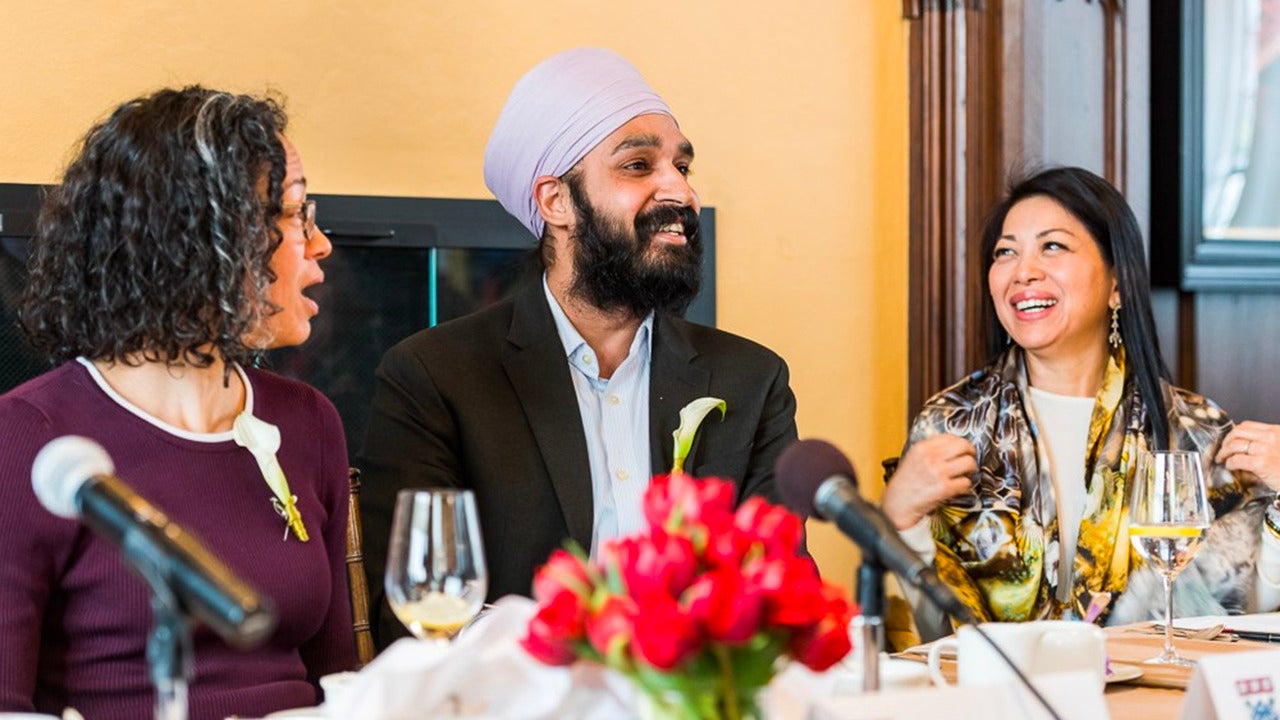For Generation Z, American religious life has been defined by its diversity. And religious pluralism has been as much practice as principle.
Young adults today have close friends and family members spanning a variety of religious identities and beliefs. In a survey conducted by the Survey Center on American Life, we found that nearly one in five (17%) of all marriages in the last decade have been among people of different faith traditions. If you count marriages between religious and non-religious people, the number of “interfaith” couples rises to nearly one in three (32%). In fact, marital relationships between religious and non-religious people are nearly as common as those between people of different faiths.
Given the rising number of Americans who are not attached to a religious tradition—34% of Gen Z is unaffiliated—interfaith dialogue is no longer just taking place between people who are balancing differences in belief systems. It’s also occurring between those with entirely different perceptions about the necessity and relevance of religion.
These conversations will not always be easy. Attitudes about religion have grown increasingly negative, especially among the nonreligious, and public confidence in organized religion has cratered. A recent survey finds that nearly seven in ten (68%) Americans who are unaffiliated believe that religion causes more problems than it solves.
But despite feelings of disappointment that many young people feel about traditional religious practice, research shows again and again that involvement in a religious community boosts our personal wellbeing, civic engagement, and sociability. The good news is that even Americans who reject organized religion still express interest in spiritual pursuits, seeking social connectedness and participating in groups or activities that serve a common purpose.
But perhaps even more importantly, many young people feel there are more opportunities to define their own religious worldview in ways that feel impossible in more traditional religious settings.
In an interview with the Arizona Republic, Manvi Harde, a member of Gen Z whose family identifies with Jainism, says that her appreciation for her faith did not come about until she became involved with an interfaith community. She reflects that Gen Z’s problem with organized religion is that it is something prescribed to them, as opposed to something they can help shape. “[It’s] never something that we get to build for ourselves,” she said.
This is a crucial point. For many young people, organized religion exists as a set of rules to be followed and restrictions to abide by. The lack of confidence young people have in organized religion may well be due to the feeling that there are few opportunities to have open and honest conversations about what their faith means and how it should be lived. A 2020 survey found that six in ten (60%) young adults ages 18 to 29 said their church or denomination should either adjust traditional beliefs in light of changing social circumstances or adopt entirely new practices and beliefs. It’s unclear how many religious congregations and denominations are ready to make these kinds of commitments.
What’s clear, however, is that a growing number of Gen Zers are looking for opportunities to join conversations and be part of communities that affirm their ideals and aspirations. An increasing number of young adults will not only be negotiating between different religious ideas and values but between a spiritual and secular worldview as well. And they are most likely to turn to people and organizations that can help them do it. For a generation experiencing unprecedented feelings of social isolation and disconnection a community founded on the ideals of openness, inclusivity, and religious pluralism is sure to be appealing.
Daniel Cox is a senior fellow in polling and public opinion at the American Enterprise Institute (AEI) and the director of the Survey Center on American Life. He specializes in survey research, politics, youth culture and identity, and religion.


